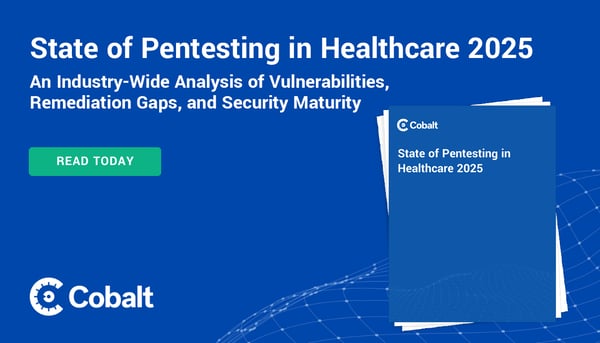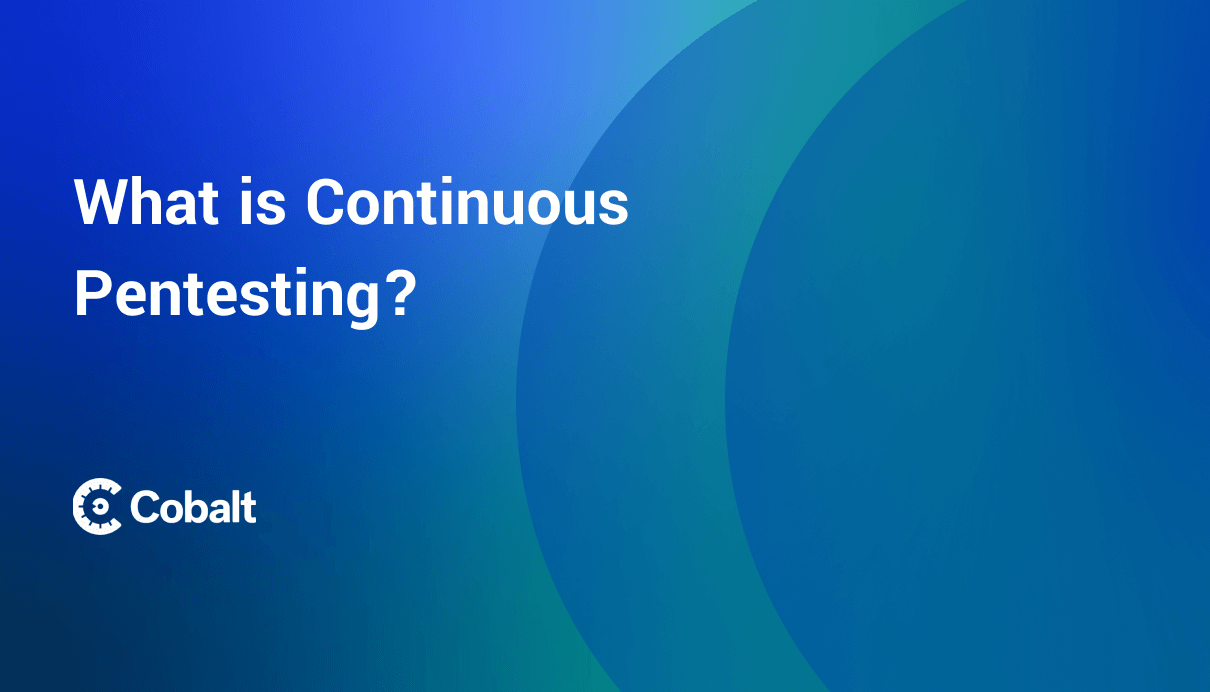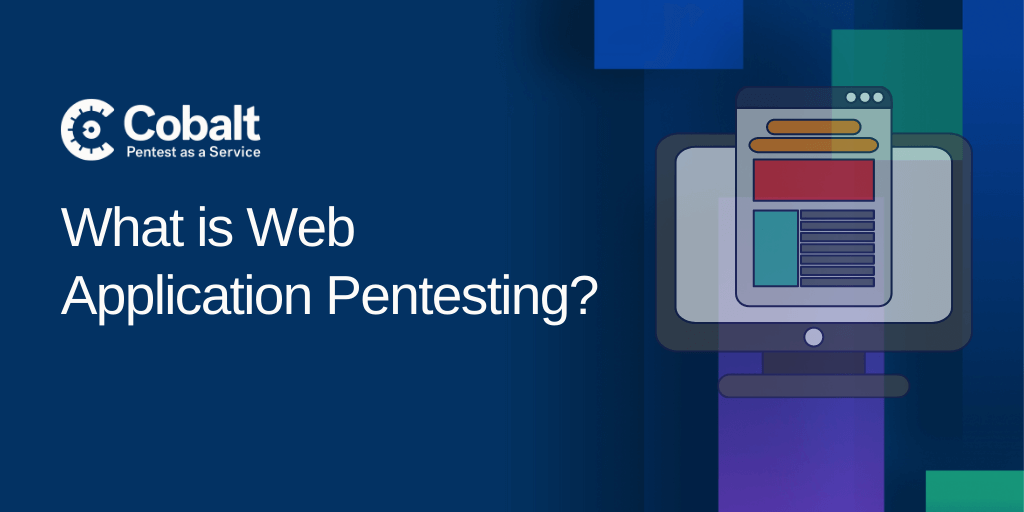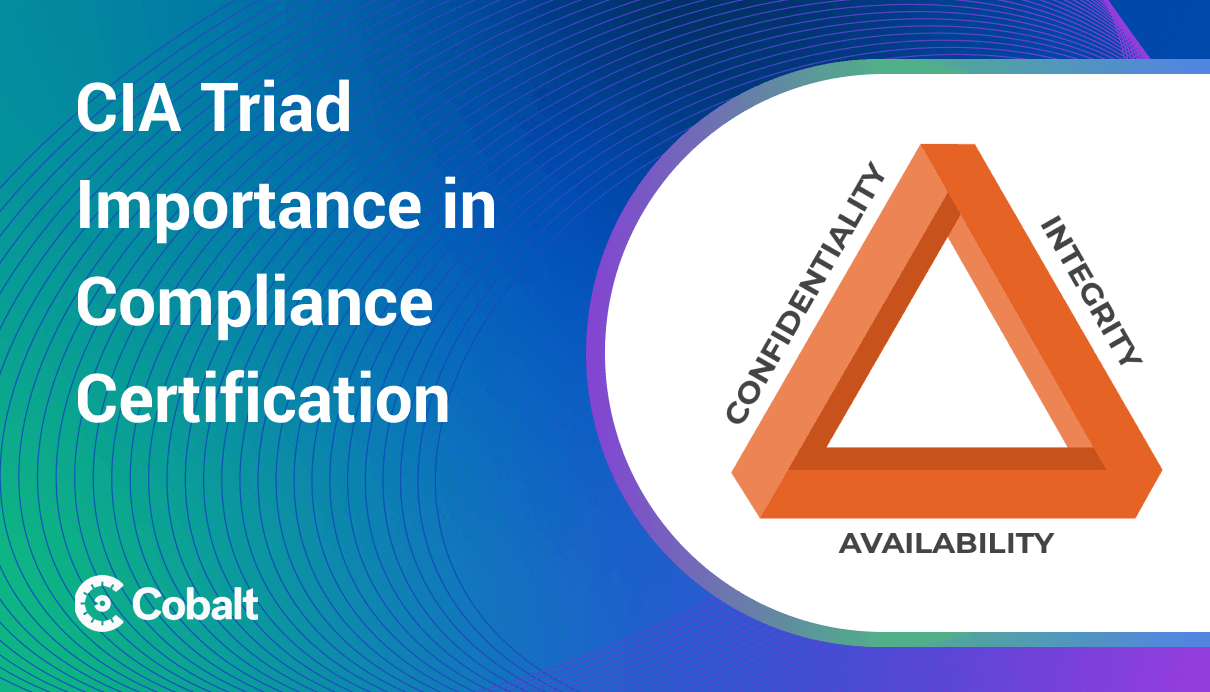In today's rapidly evolving cybersecurity landscape, maintaining robust security measures is paramount. Pentesting compliance plays a vital role in ensuring the resilience and integrity of your digital infrastructure. By adhering to industry standards and regulations, you can identify vulnerabilities, assess risks, and fortify your defenses against any potential threats.
Here, we’ll dive into pentesting compliance frameworks such as HIPAA, PCI-DSS, SOC 2, ISO 27001 and more. Read on to unravel these standards and get insight into how you can achieve and maintain compliance while bolstering your overall security posture.
What Is Pentesting Compliance?
Pentesting compliance is the process of conducting penetration testing activities to meet specific regulatory or industry standards. It plays a vital role in ensuring the security and integrity of information systems, networks, and applications. By assessing vulnerabilities and weaknesses through controlled testing, pentesting compliance helps identify potential security risks and provides valuable insights to enhance overall cybersecurity posture.
Various compliance frameworks and standards govern the requirements for pentesting. Examples include the Payment Card Industry Data Security Standard (PCI DSS), Health Insurance Portability and Accountability Act (HIPAA), General Data Protection Regulation (GDPR), and International Organization for Standardization (ISO) standards such as ISO 27001.
Why is Pentesting Crucial for Compliance?
Businesses must recognize the benefits of embracing new security services instead of sticking to conventional methods. Recently, the U.S. Congress introduced the Proactive Cyber Initiatives Act of 2022 (H.R.8403) to enforce penetration testing for government systems with moderate to high-risk levels. This legislation also requires federal agencies to provide reports on proactive cybersecurity approaches.
Penetration testing plays a crucial role in cybersecurity by identifying how an attacker could exploit an organization's infrastructure to access sensitive data. With ever-growing attack strategies, regular mandated testing ensures organizations can proactively address and rectify security vulnerabilities before malicious actors leverage them. Additionally, these tests are valuable for auditors as they verify the implementation and effectiveness of other mandated security measures.
Adhere to compliance with pentesting tools
Adherence to various data privacy and compliance regulations has become essential in today’s business landscape. From GDPR to PRA operational resilience, organizations must navigate complex requirements. For instance, Article 32 of GDPR emphasizes the importance of regular testing and evaluation of technical and organizational measures implemented to safeguard personal data.
In the United States, the PCI DSS regulation mandates penetration tests to protect cardholder data at least once a year and after significant changes to an organization's environment. Continuous penetration testing showcases a company's commitment to compliance with data privacy laws, demonstrating that it is taken seriously rather than viewed as an inconvenience.
Contrary to popular belief, third-party testing is not always necessary to fulfill compliance requirements. Even PCI DSS, which has explicit penetration testing requirements, does not explicitly mandate third-party testing. Some organizations find that certain aspects of compliance testing are straightforward and repetitive. Cobalt offers tools such as automated frameworks that simplify the testing process, increasing accessibility even for those without extensive penetration testing experience.
Other notable regulations that require pentesting for compliance include:
- ISO 27001: An internationally recognized standard for information security management systems (ISMS). It helps organizations establish, implement, maintain, and improve their information security practices.
- Service & Organization Controls 2 (SOC 2): A voluntary compliance standard for technology service providers and Software-as-a-Service (SaaS) companies. It defines criteria for handling customer data, including security, availability, processing integrity, confidentiality, and privacy.
- NIS Directive (Directive on Security of Network and Information Systems): An EU-wide cybersecurity legislation that sets high-security standards for critical infrastructure sectors. It applies to Operators of Essential Services (OES) such as energy, transport, health, and water, as well as Digital Service Providers (DSP) such as online search engines, online marketplaces, and cloud computing services (excluding smaller cloud service enterprises).
Who Needs Pentesting Compliance?
Pentesting compliance is essential for any company handling sensitive data or operating in regulated industries. These groups typically need pentesting compliance:
- Regulatory Compliance: Finance, healthcare, government, and e-commerce sectors must meet specific regulatory mandates. For instance, financial institutions adhere to PCI DSS, while healthcare organizations comply with HIPAA. Pentesting ensures data protection and regulatory obligations.
- Customer Data Handlers: Anyone who collects customer data needs pentesting compliance. This includes E-commerce platforms, online service providers, and social media companies. It safeguards customer data, identifies vulnerabilities, and enforces strong security measures.
- Government Entities: Government agencies handle classified data and citizen records, necessitating pentesting compliance to meet rigorous security requirements.
- Service Providers and Contractors: Managed service providers, cloud service providers, and vendors accessing clients' networks or data must comply with pentesting standards based on contractual agreements or industry norms.
- Risk-Aware Organizations: Organizations prioritizing the risk mitigation benefit from pentesting. Proactive penetration tests identify vulnerabilities, enhance security posture, and safeguard assets and reputation.
In brief, pentesting compliance is necessary for organizations subject to regulatory requirements, those handling customer data, government agencies, service providers, contractors, and entities committed to risk mitigation and cybersecurity best practices – in other words, almost everyone.
6 Penetration Testing Standards
1. HIPAA
HIPAA, the Health Insurance Portability and Accountability Act, is a critical compliance standard within the healthcare industry in the United States. Enacted in 1996, HIPAA establishes regulations to protect patients' sensitive health information and ensure the secure transmission and storage of electronically protected health information (ePHI).
HIPAA compliance encompasses various requirements that healthcare providers must follow. These requirements include:
- Privacy Rule: The HIPAA Privacy Rule safeguards individuals' rights to control the use and disclosure of their health information. It sets standards for how ePHI should be protected, shared, and accessed by healthcare entities.
- Security Rule: The HIPAA Security Rule outlines security standards for protecting ePHI in electronic form. It requires the implementation of administrative, physical, and technical safeguards to ensure the confidentiality, integrity, and availability of ePHI.
- Breach Notification Rule: The HIPAA Breach Notification Rule mandates that covered entities notify affected individuals, the Department of Health and Human Services (HHS), and, in some cases, the media about breaches of unsecured ePHI.
- Omnibus Rule: The HIPAA Omnibus Rule introduced additional modifications to strengthen privacy and security protections, extend requirements to business associates, and enhance enforcement and penalties for non-compliance.
Compliance with HIPAA is crucial to protect patients' privacy, maintain data security, and prevent unauthorized access to sensitive health information. Organizations subject to HIPAA must conduct risk assessments, implement policies and procedures, train employees, and maintain strict safeguards to achieve and maintain compliance.
Non-compliance with HIPAA can lead to severe penalties, including substantial fines and reputational damage. Therefore, healthcare companies must prioritize HIPAA compliance to ensure the confidentiality, integrity, and availability of patients' ePHI and maintain trust in the healthcare system.
To achieve this requirement, internal or external pentesting is recommended to stay in compliance with HIPAA regulations. While not a specific rule, pentesting is a valid way to achieve the necessary security controls such as rule 2 which states that companies must, "Identify and protect against reasonably anticipated threats to the security or integrity of the information." Read more about how to become HIPAA compliant.
2. PCI-DSS
PCI-DSS, the Payment Card Industry Data Security Standard, is a compliance standard designed to protect cardholder data and ensure secure payment card transactions. It applies to organizations that handle, process, or store cardholder data, including merchants, financial institutions, and service providers involved in payment card processing.
PCI-DSS compliance involves adhering to a set of security requirements, which include network security, data protection, access control, and regular testing of security systems. Pentesting is an essential component of PCI compliance, as it helps identify vulnerabilities that could compromise cardholder data.
If you’re subject to PCI-DSS, you should engage qualified and experienced penetration testing professionals to perform comprehensive assessments and remediate any vulnerabilities identified. Regular pentesting is a critical measure to maintain PCI-DSS compliance and protect payment card data from potential threats.
How frequently does PCI DSS require pentesting to be performed to maintain compliance?
According to the PCI DSS standard, Requirement 11.3, organizations must conduct external and internal network penetration testing at least annually or after significant changes to their network or applications. Additionally, Requirement 11.3 also states that organizations should perform additional testing as needed to address any vulnerabilities discovered during the penetration testing process.
While the standard specifies a minimum frequency of annual testing, it is important to note that organizations are encouraged to conduct more frequent pentesting. Implementing regular pentesting, such as quarterly assessments, is a recommended best practice to ensure continuous security monitoring and promptly address any newly emerging vulnerabilities.
The intention behind continuous pentesting in the PCI-DSS standard is to proactively identify and mitigate potential security weaknesses, reduce the risk of data breaches, and maintain a strong security posture. By conducting pentesting on a regular basis, you can ensure the ongoing effectiveness of your security controls and demonstrate your commitment to safeguarding payment card data.
Read more about how to achieve PCI compliance.
3. SOC 2
SOC 2, which stands for Service Organization Control 2, is a compliance framework developed by the American Institute of Certified Public Accountants (AICPA). It assesses and reports on the controls and processes implemented by service organizations to ensure the security, availability, processing integrity, confidentiality, and privacy of customer data.
SOC 2 reports are widely recognized and trusted in the industry, providing assurance to customers, stakeholders, and regulators about an organization's commitment to data security and privacy. The reports evaluate the design and operational effectiveness of controls over a defined period, typically six months or one year.
SOC 2 reports are based on the Trust Services Criteria (TSC), which consist of five key principles:
- Security: The system is protected against unauthorized access, both physical and logical.
- Availability: The system is available for operation and use as agreed upon.
- Processing Integrity: The system processes data accurately, completely, and in a timely manner.
- Confidentiality: Information designated as confidential is protected as per agreed-upon measures.
- Privacy: Personal information is collected, used, retained, and disclosed in accordance with established privacy principles.
Organizations undergo a rigorous assessment by independent auditors to receive a SOC 2 report. The report provides valuable insights into an organization's controls and helps customers make informed decisions regarding data security and privacy.
Achieving SOC 2 compliance demonstrates an organization's commitment to meeting stringent industry standards and instills confidence in customers by showcasing the effectiveness of their security and privacy measures.
Is Pentesting Required for SOC 2 Compliance?
SOC 2 does not explicitly require penetration testing. However, it emphasizes the need for organizations to implement appropriate controls and measures to safeguard customer data. While penetration testing is not a specific requirement, organizations may choose to include it as part of their security assessment and testing activities to validate the effectiveness of their controls and identify potential vulnerabilities.
4. ISO 27001
ISO 27001 is an international standard that provides a framework for establishing, implementing, maintaining, and continually improving an information security management system (ISMS). The standard outlines best practices and controls to manage the security of an organization's information assets.
ISO 27001 focuses on systematically identifying and managing risks to the confidentiality, integrity, and availability of information within an organization. It provides a structured approach to information security, encompassing areas such as risk assessment, security policy, asset management, access control, incident response, and ongoing monitoring and improvement.
By implementing ISO 27001, organizations demonstrate their commitment to protecting sensitive information and managing security risks effectively. The standard promotes a holistic and risk-based approach, tailored to the specific needs of the organization, ensuring that security measures are aligned with business objectives.
ISO 27001 certification involves a comprehensive assessment by an accredited certification body to verify compliance with the standard's requirements. Achieving ISO 27001 certification signifies that an organization has established a robust information security management system and is dedicated to maintaining the confidentiality, integrity, and availability of information assets.
The framework requires companies to renew every 3 years. Specifically, control A.12.6.1 of Annex A of ISO/IEC 27001 requires organizations to manage vulnerabilities. This control within the framework requires that organizations evaluate and take appropriate measures to address the associated risks.
All and all, ISO 27001 certification enhances an organization's reputation, instills trust among stakeholders, and provides a competitive edge in the market. It also helps organizations meet regulatory requirements, mitigate security risks, and demonstrate their commitment to protecting valuable information assets.
Is Pentesting Required for ISO 27001 Compliance?
Similar to SOC 2 compliance, ISO 27001 does not explicitly require penetration testing. Again similar to SOC 2, ISO 27001 emphasizes the need for organizations to manage vulnerabilities and address associated risks. Completing a pentest can be an effective approach to fulfill this requirement.
5. NIST
NIST, short for the National Institute of Standards and Technology, is an agency of the United States Department of Commerce. NIST develops and promotes standards, guidelines, and best practices to enhance the security, privacy, and resilience of information systems and technologies.
One of the most widely recognized publications from NIST is the NIST Special Publication (SP) 800-53, which provides a comprehensive set of security controls for federal information systems and organizations. This publication serves as a foundation for cybersecurity frameworks and is often adopted by government agencies, contractors, and organizations in various industries.
NIST's cybersecurity framework promotes a risk-based approach to managing and protecting information assets. It addresses areas such as access control, incident response, risk assessment, security awareness training, and system and network monitoring.
The standards require organizations to conduct independent penetration testing as a part of the CA-8 Control. Furthermore, the framework dictates the frequency of testing is determined by the organization which should be determined by their risk assessment.
NIST's contributions to cybersecurity extend beyond federal systems. Their standards are widely adopted by organizations globally to enhance their security posture and align with industry best practices. NIST's approach emphasizes continuous monitoring, risk management, and adaptive security measures to effectively address the evolving cybersecurity landscape.
By leveraging NIST's guidance, organizations can enhance their resilience to cyber threats, improve their security practices, and achieve compliance with relevant regulations and requirements. NIST's expertise and contributions have significantly influenced the field of cybersecurity, serving as a valuable resource for organizations seeking to strengthen their information security capabilities.
6. FINRA
FINRA, the Financial Industry Regulatory Authority, is a self-regulatory organization (SRO) in the United States that oversees and regulates brokerage firms and registered brokers. It is authorized by the U.S. Securities and Exchange Commission (SEC) to enforce compliance with securities industry rules and regulations.
FINRA's primary mission is to protect investors and maintain the integrity of the securities industry. It achieves this by setting rules and standards for the securities industry, conducting examinations and surveillance of brokerage firms, and enforcing compliance with regulations.
As an SRO, FINRA establishes and enforces rules related to sales practices, trading activities, and ethical conduct in the securities industry. It also provides guidance and resources to help firms and individuals understand and comply with regulatory requirements.
FINRA's regulatory responsibilities cover a wide range of areas, including securities offerings, supervision and compliance, dispute resolution, market integrity, and investor education. It plays a crucial role in maintaining fair and transparent markets, promoting investor confidence, and ensuring that securities industry participants adhere to high standards of professionalism and ethical behavior.
Brokerage firms and registered brokers are subject to FINRA's oversight and must comply with its rules and regulations. Failure to meet FINRA's requirements can result in disciplinary actions, fines, and other penalties.
Overall, FINRA's regulatory framework and enforcement efforts contribute to the protection of investors and the integrity of the securities industry, fostering trust and confidence in the financial markets.
Ensure Compliance and Strengthen Your Security Posture with Effective Pentesting
Pentesting compliance is crucial in today's cybersecurity landscape, and Cobalt is here to assist you.
With our Pentest as a Service (PtaaS) platform, you can achieve deeper analysis and customization while maintaining efficiency and scalability. With penetration testing services by Cobalt, you can mitigate risks, foster DevSecOps agility, and scale your security efforts with ease. Take proactive measures, address vulnerabilities, and innovate securely.
Contact us today to embark on a journey towards pentesting compliance and protect your valuable assets.











